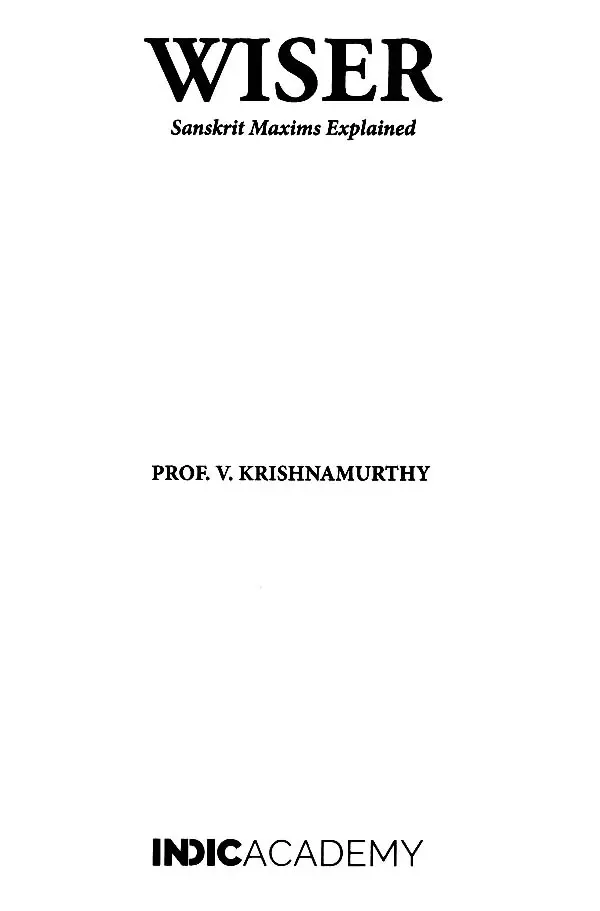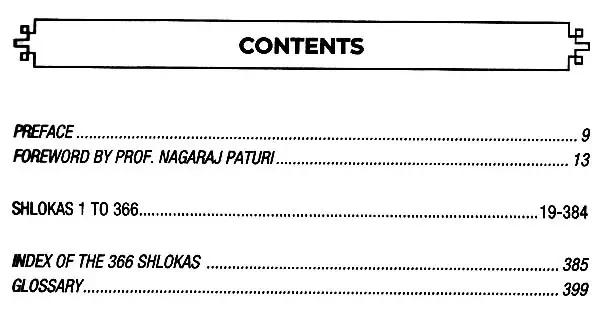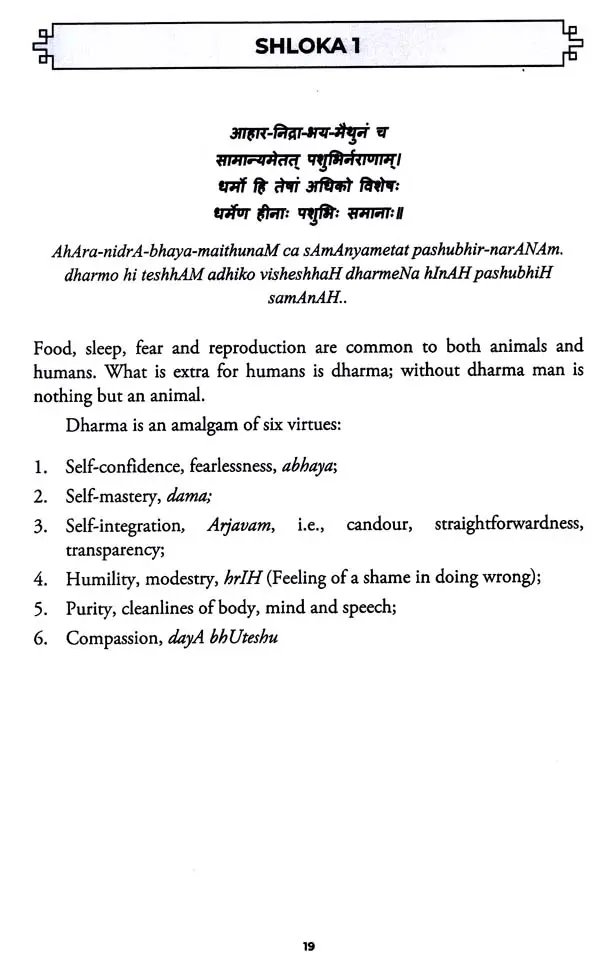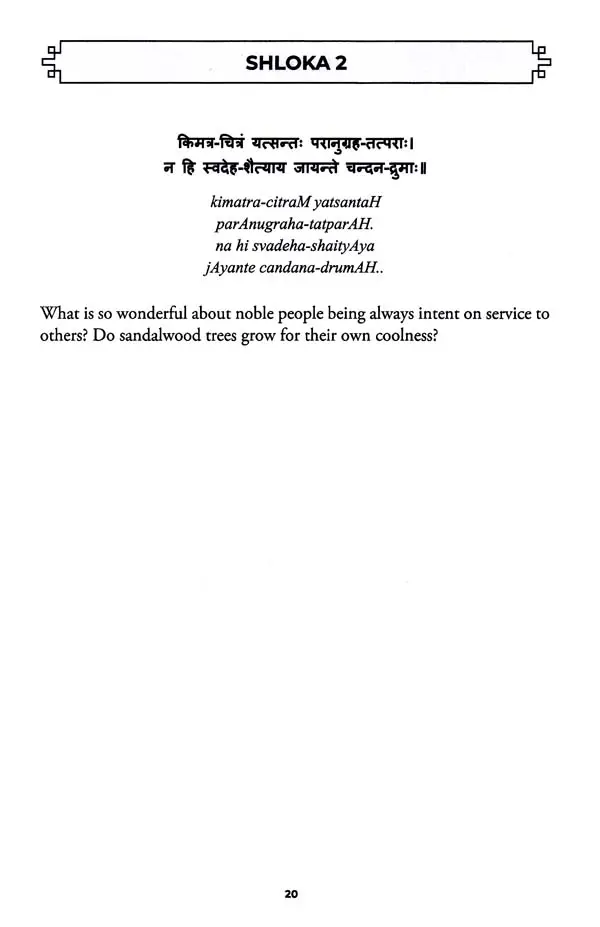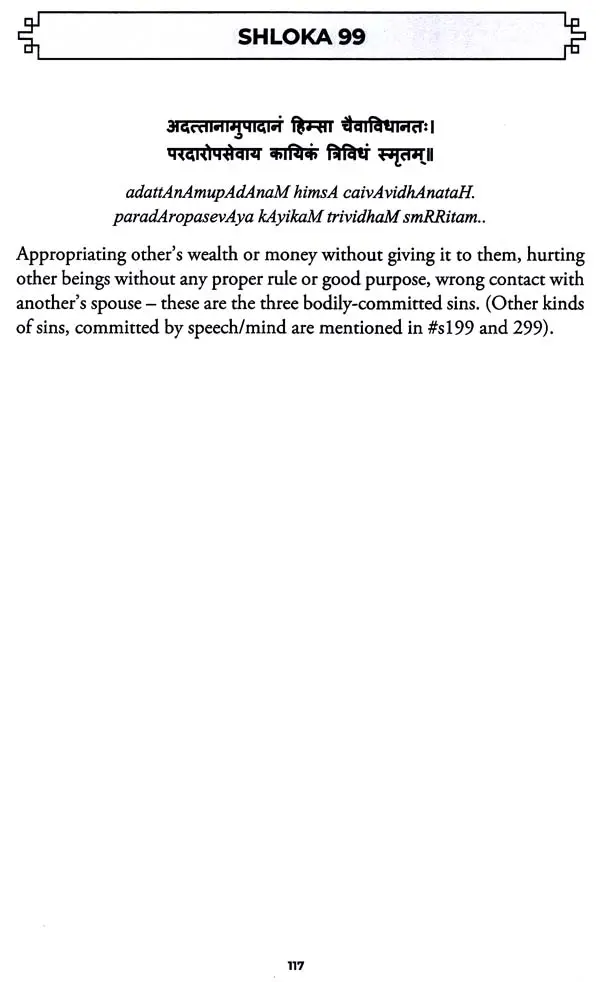
Wiser: Sanskrit Maxims Explained
Book Specification
| Item Code: | UAJ665 |
| Author: | V. Krishnamurthy |
| Publisher: | Indica Academy |
| Language: | Sanskrit Text with English Translation |
| Edition: | 2021 |
| ISBN: | 9781638066644 |
| Pages: | 402 |
| Cover: | PAPERBACK |
| Other Details | 9.00 X 6.00 inch |
| Weight | 540 gm |
Book Description
He has lectured widely to both domestic and foreign audiences on our ancient scriptures like the Upanishads, Valmiki Ramayana, Shrimad Bhagavatam and Bhagavad Gita. As a prolific writer with more than a dozen books on Mathematics, Hinduism and Advaita Philosophy, he is noted for his missionary zeal for making these accessible to the educated layman. His latest publication among others is Thus Spake Krishna. In addition, he is a recipient of half a dozen awards and honours for his distinguished thoughts and contributions, the latest being a Grateful2 Gurus Award by the Indic Academy.
The first thought that came to me after seeing the contents on a preliminary look, was to share some of the shlokas from the book with all my Facebook friends in the hope that this will not only give all of us a closer acquaintance with Sanskrit but also give us gems and pearls of wisdom. This is the origin of this book.
Throughout 2020 I have been posting one shloka (with transliteration as well as translation, and sometimes some explanations in English) on each day of the year 2020 on my own FB page as well as a few other friendly FB pages. These postings were either from this ancient collection or from my own acquaintance with books in Sanskrit. It has finally turned out to be about half and half from the above book and the other half from other literature in Sanskrit. In most of the cases the Subhashitas shlokas from the compilation can also be traced to one or other famous author in Sanskrit. It may be noticed that there is no continuity of thought intended in the sequence of shlokas; it is a random collection. Also it may be noted that there are a few shlokas (e.g., 154, 221, 225, 355, 360) which may be classified more as a mantra than a Subhashitas...
In this process I had valuable help from many of my friends to whom this book and I shall stand always indebted. The names are mentioned at the respective shlokas where the help came. For a general formatting assistance I am thankful to Usha Sekhara, K.C. Sekhara and R. Narayanan. To the Sekhara couple I am also indebted for their meticulous editing of the entire manuscript, particularly the English meanings which were revised for a better understanding by readers who may not be familiar with cultural ways of Indian tradition.
There is another Sanskrit word, that is translated as 'maxim', it is 'nyaaya'. Nyaaya in Sanskrit is close equivalent of, but not the same as 'proverb' in English. Many Indian languages too have genres of daily speech which can be called proverbs. Proverbs are traditionally settled expressions of conventional/received/popular wisdom in a given language/ culture. Nyaayas in Sanskrit are similar, traditionally settled expressions of conventional/received/popular wisdom in Sanskrit. Proverbs in most languages are idiomatic expressions in the form of full sentences. But nyaayas in Sanskrit are in the form of phrases not sentences. But both Sanskrit nyaayas and proverbs in various languages are handed down from tradition and convention and as such have no known authors. Proverbs and nyaayas treasure the accumulated wisdom of elders.
**Contents and Sample Pages**
